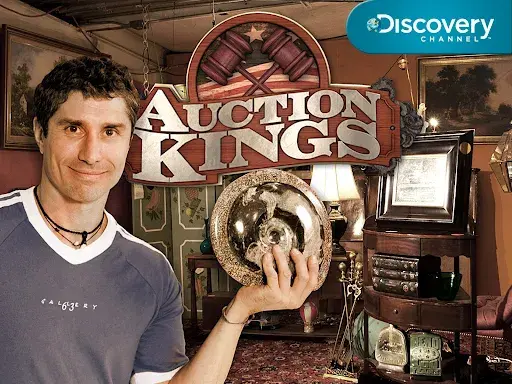Divide Deepens Between Many Video Game Collectors and Auction Industry

Until recently, video game collector and YouTube personality MetalJesusRocks never thought the high prices video games achieve at auction would impact him. “I’m not a buyer or seller of graded, sealed retro games,” he said in a recent video. “I don’t even care about that world, to be quite honest with you.”
That changed when MetalJesusRocks realized that even a family in his area with little knowledge of video games took notice of the USD 2 million price a copy of Super Mario Bros. recently achieved. Hoping that they, too, may be sitting on an eight-figure collectible, the family factored the Super Mario Bros. sale into how they priced their own video games in a modest, neighborhood garage sale. “When you are standing at a garage sale, like I do, trying to get a good deal on stuff, that is a bit of an eye opener, for sure,” he told his viewers. “So I knew things at that point, they had changed, for sure.”
On August 6th, 2021, a factory-sealed copy of Super Mario Bros. on the Nintendo Entertainment System sold for $2 million. That is a new record for the highest price ever paid for a video game. Unlike the last six games to break the record, this copy of Super Mario Bros. did not cross the auction block with Heritage Auctions. Instead, an anonymous collector acquired it from a group of owners who held fractional shares on Rally, an investment platform.

From video games to baseball cards, Rally acquires high-end collectibles that individuals can then own equity shares in, much like stock in a company. They can sell their shares in the Rally mobile app as the collectible appreciates in value or hold out for a person or organization to make a substantial offer on the collectible. Three-fourths of the shareholders in this copy of Super Mario Bros. approved the $2 million sale after turning down a $300,000 offer just last year. Polygon reports that shareholders saw a roughly 900% return on investment.
While not sold at auction, this result continues the exponential rise in value for sealed retro games, especially those professionally graded by Wata Games. In July 2021, Heritage Auctions broke the record for highest-selling video game twice in one week. First, a copy of The Legend of Zelda achieved $870,000. Then, two days later, a copy of Super Mario 64 crossed the million-dollar mark with Heritage Auctions, selling for $1.56 million.

Over the last few months, outlets such as Auction Daily have noted that while uniquely sudden, the rise of record-breaking video game auctions has clear precedent. Baseball cards and comic books have seen a similar boon at auction. As a new generation of collectors and investors enters the auction industry, the collectibles they are nostalgic for greatly appreciate in value. “I think that we’re starting to see the natural progression of ‘What else? What are the things that have appreciated in value from my childhood that have that nostalgia?’” Rally co-founder Rob Petrozzo told The New York Times.
Meanwhile, for the average video game collector, the flurry of new records is puzzling. Many in the community are used to driving to garage sales or thrift stores and buying vintage games, often for only a few dollars apiece. The money these collectors save then usually goes to a few high-end pieces such as collectors’ editions of new games or factory-sealed copies of retro games.
However, prices for typical large-ticket games pale in comparison to the numbers that various Mario and Zelda games achieved in recent auctions and the Rally sale. For example, a new, factory-sealed copy of Shantae for the Game Boy Color, one of the rarest games with an avid fanbase, has a market price of $3,338, according to PriceCharting. Meanwhile, a collectors’ edition of the newest game in that series, Shantae and the Seven Sirens for the Nintendo Switch, sells on average for $159.98.

In the video game collecting community, the value of a particular game is often decided by how rare the title is and how much demand exists for it. That is where many in the community see the biggest disconnect between retro game sales and recent auction results. The titles setting new records, particularly Super Mario Bros. and Super Mario 64, are relatively common. PriceCharting estimates that used, complete copies of both games sell about once each day. While nostalgia drives high demand for both of these titles, there appears to be enough supply of each Mario game to keep prices far below these record-breaking numbers.
Still, many argue that the sky is the limit when it comes to the value of highest-graded examples of classic video games. “Attaining the finest known example from a condition standpoint drives a certain type of collector’s behavior, specifically the collector who wants the absolute best,” says the CEO of grading company Wata Games, Ryan Sabga.
The tension between the video game collecting community and the auction industry reached new heights in late August 2021. In a video published on August 23rd, 2021, YouTuber Karl Jobst accused Heritage Auctions and Wata Games of manipulating the market for collectible video games.
In his video, Jobst notes that Heritage Auctions entered the video game category in early 2019 by privately selling a copy of Super Mario Bros. for a then-record price, $100,150. The game was purchased by a group of owners that included Heritage Auctions’ own founder, Jim Halperin. In the press release announcing the sale and new record, Halperin hints that the copy may appear in a future Heritage Auctions event. The press release also includes several quotes from Wata Games President Deniz Kahn. In one of these quotes, Kahn speculates that “the hobby’s upward trajectory indicates no signs of slowing down.”

In Jobst’s view, these and other actions allegedly taken by Wata Games and Heritage Auctions amount to unethical and illegal market manipulation. The accusations are widely debated both among video game collectors and in the auction industry. “Wata Games is the trusted leader in collectible video game grading,” said a Wata Games spokesperson in a statement to the Video Games Chronicle. “The claims in this video are completely baseless and defamatory and it is unfortunate that Mr. Jobst did not contact us to give us the opportunity to correct him.”
A Heritage Auctions representative also made a statement to VGC. “Heritage strongly refutes any allegation that it or its officers are involved in shill bidding, ‘market manipulation’ or any similarly illegal or unethical practices. Heritage prides itself on our transparency and being a place built by and for collectors.”
The debate continues over Karl Jobst’s claims. Still, as of writing, Jobst’s video has over 900,000 views and an overwhelmingly favorable like-dislike ratio. This points to the video game collecting community’s growing distrust of the auction industry, particularly Heritage Auctions. It is unclear if the subcategory can continue to thrive at auction if many of its most adamant buyers grow increasingly discontent.
Many high-profile video game collectors, such as MetalJesusRocks, once thought casual collecting and the high-end market could co-exist on separate tracks. Now, these collectors feel the effects of rapidly escalating prices. For his part, MetalJesusRocks advised his audience of over 843,000 subscribers to avoid high-end auctions and graded video games at this time. “When everybody else is going left, go right… I personally love just going the other direction.”
Auction Daily will continue following this developing story. Check our Auction News page for the latest on this and other industry headlines.










